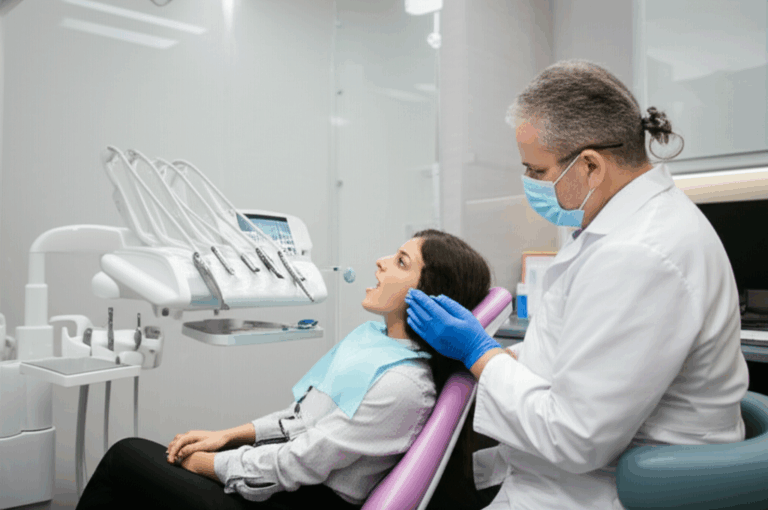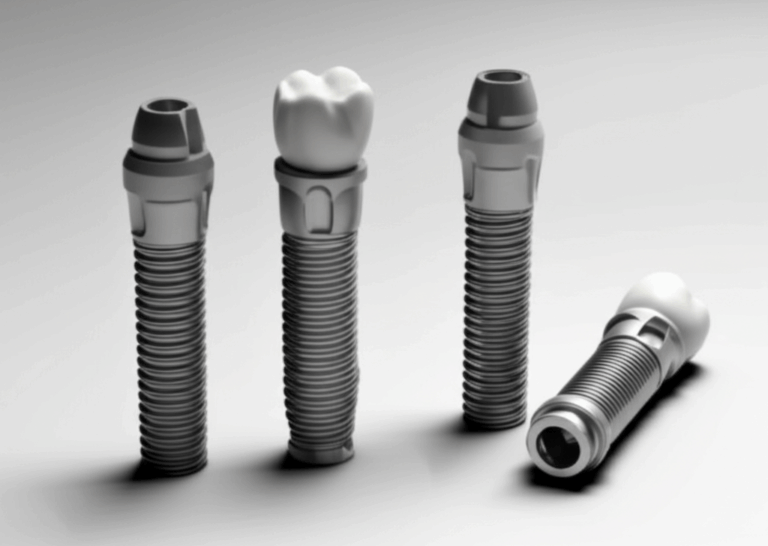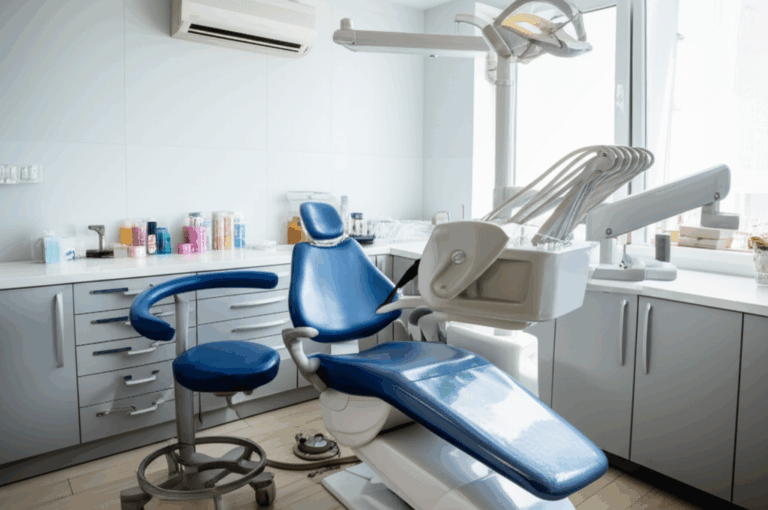
Can Dental Problems Cause Pressure in Your Head? Understanding the Link
Ever felt a weird pressure in your head, maybe near your temples or behind your eyes, and wondered, “Is this coming from my teeth?” You’re not the only one. Many people don’t know that problems with your teeth can actually make your head feel heavy or sore. This article will explain why your headaches might be coming from your mouth, how to notice the clues, and what you can do to feel better. Keep reading—you might finally find the answer you’ve been looking for!
Table of Contents
- What Is Head Pressure and Why Should I Care?
- Can a Tooth Infection Cause Head Pressure?
- Do Problems with the Jaw Joint (TMJ) Affect Your Head?
- Can Grinding or Clenching Teeth Cause Headaches?
- Are Wisdom Teeth to Blame for My Head Pain?
- Can Cavities, Cracks, or Other Dental Problems Cause Pressure?
- How Do I Know If My Head Pressure Comes from My Teeth?
- When Should I Visit a Dentist or Doctor?
- How Will the Dentist Figure Out What’s Wrong?
- What Treatments Work for Dental-Related Head Pressure?
- How Can I Prevent Dental Problems That Cause Headaches?
- FAQ: Common Questions about Dental Head Pressure
- Key Takeaways: What to Remember
What Is Head Pressure and Why Should I Care?
Let’s start at the beginning. Head pressure isn’t always the same as a normal headache. It can feel like a band squeezing your forehead or a heavy feeling behind your eyes. Sometimes it throbs, sometimes it just feels like someone is pressing down. Either way, it can make your day really hard.
Why does this matter? Well, if you don’t pay attention to this kind of pain, it usually gets worse. A lot of people think it’s just stress, staring at a screen too long, or maybe a sinus problem. But guess what—your teeth could actually be the reason you’re feeling bad.
If you just let the pain go on, small problems can turn into big ones. Getting help from your dentist early can help you feel better and keep you healthy.
Can a Tooth Infection Cause Head Pressure?
Yes, for sure. Your teeth and your head are closely connected. If you have a tooth infection or a dental abscess, germs gather inside your tooth or gums. The infection can make things swell up and sometimes there’s even a pocket of pus.
This swelling pushes against the nerves in your mouth and can spread into the areas by your cheeks, eyes, or even your sinuses. What does that feel like? A throbbing feeling in your head, swelling, and sometimes even a fever.
Say you have an abscess in your top molar, which is close to your maxillary sinus. If the germs spread, you might have pain and a heavy, stuffed feeling under your eyes, and even a stuffy nose. Sometimes the pain gets worse when you chew or bend over. It’s your body’s way of saying “Hey, something’s wrong!”
Table: Signs Your Tooth Infection Might Cause Head Pressure
| Sign | What to Look For |
|---|---|
| Throbbing tooth pain | Hurts more when chewing |
| Swelling | In jaw or face |
| Fever | Sometimes chills, too |
| Bad taste in mouth | Or bad breath |
| Pressure under eyes | Sinus pain or stuffiness |
If you notice these things, call your dentist right away. Waiting could lead to bigger problems, and sometimes, though it’s rare, infections can even spread to your brain.
Do Problems with the Jaw Joint (TMJ) Affect Your Head?
Have you felt pain in your jaw, neck, or near your temples? It could be your temporomandibular joint—that hinge that lets your jaw move. If this joint (called TMJ) or the muscles around it get sore, it’s known as TMJ disorder.
Here’s where it gets interesting. TMJ problems can send pain all over your head. You might get headaches, pain near your ears, pressure around your temples, or even pain spreading down your neck and shoulders.
Some common TMJ signs:
- Clicking or popping when you open your mouth
- Tired or sore jaw muscles, especially in the morning
- Hard time chewing, talking, or yawning
- Achy or stiff feeling near your jaw and temples
Doctors see TMJ problems a lot. In fact, about 10-15% of grown-ups have these signs. Up to 70% of people with TMJ say they have headaches or head pressure. That’s a lot!
Can Grinding or Clenching Teeth Cause Headaches?
Do you wake up with a sore jaw or a headache? You could be doing something called bruxism—grinding or clenching your teeth, usually while you sleep. You might not know you’re doing it, but your body can feel the results.
Grinding your teeth puts too much work on your jaw muscles, like the masseter and temporalis. When these muscles get tight and tired, you can get a dull headache or pressure around your head, especially at your temples. Sometimes, the pain feels like it’s wrapping all the way around your head, like a tight band.
Signs of bruxism:
- Teeth that look flat or worn down
- Sore jaw in the morning
- Tight or achy feeling across your forehead or temples
- Jaw that clicks or locks
If this sounds familiar, talk to your dentist. They might suggest a night guard to help you stop grinding and let your jaw rest. For more about night guard solutions, check night guard dental lab.
Are Wisdom Teeth to Blame for My Head Pain?
Wisdom teeth are those last molars that usually show up in your late teens or early twenties. Most mouths don’t have room for them, so wisdom teeth can get stuck, or “impacted.” Impacted wisdom teeth can press against other teeth, nerves, or your jawbone, leading to swelling, infection, and—yep—head pain.
Impacted wisdom teeth can cause:
- Pressure and pain in the far back of your jaw
- Swelling or redness by the tooth
- Infection (pericoronitis) that brings fever and pounding pain
- Pain that spreads to your ear or head
If your head feels funny and the pain is way in the back of your mouth, get checked out. Your dentist can let you know if your wisdom teeth are causing the problem and talk about taking them out if you need it.
Can Cavities, Cracks, or Other Dental Problems Cause Pressure?
It isn’t just big problems like abscesses or TMJ that can cause trouble. Even smaller things, like a deep cavity or a cracked tooth, can set off pain that travels to other parts of your face or head.
When a cavity gets close to the nerve inside your tooth (pulpitis), the pain can move up your jaw, side of your face, or even into your head. Cracked or chipped teeth make it easy for germs to get in, and that can mean swelling and pressure.
Other dental problems include:
- Bad bite (malocclusion): When your teeth don’t fit together right, your jaw muscles have to work harder.
- Dental cysts: Lumps under the gums can press on nerves and teeth, causing head pain.
Don’t wait—small dental problems often become big headaches. Seeing your dentist for checkups will help you spot issues early.
How Do I Know If My Head Pressure Comes from My Teeth?
Not sure if your sore head is really a tooth thing? Look for these clues:
- Toothache: Sharp, pulsing, or constant pain in a tooth.
- Jaw pain or stiffness: Sore muscles, hard to open wide.
- Ear pain: If your ear hurts but there’s no infection, your teeth might be the cause.
- Facial swelling: Puffy cheeks or jaw.
- Pain when chewing or opening: Not just when you eat.
- Clicking or popping jaw: TMJ could be acting up.
- Bad taste or bad smell: Infection or abscesses often smell.
- Fever: A sign infection is spreading.
- Teeth hurt from hot, cold, or sweets: Could mean a deep cavity or a cracked tooth.
Table: Does Your Head Pressure Come from Teeth, or Something Else?
| Dental-Related | Not Dental-Related |
|---|---|
| Tooth/jaw pain present | Eye strain (from screen time) |
| Pain after eating | Changes in air pressure |
| Swelling in cheeks | Allergies/cold |
| Bad taste or smell | Migraine with weird vision |
| Earache (no ear infection) | Cluster headaches |
If you have several dental signs, it’s time to see a dentist!
When Should I Visit a Dentist or Doctor?
Some kinds of head pressure shouldn’t be ignored. Call for help if you have:
- Really bad, throbbing pain that won’t stop
- Swelling in your face, jaw, or neck
- High fever or chills
- Trouble breathing or swallowing
- Pain moving from your tooth to jaw, ear, or neck
These things can mean you have a bad infection and might be an emergency. Get help fast from your dentist or doctor.
For other, less serious kinds of head pressure (like waking up with jaw pain, low-level headaches, or a sore tooth), make a dentist appointment soon. The sooner you get help, the easier it is to fix.
To read more about when to get checked, take a look at teeth overall health.
How Will the Dentist Figure Out What’s Wrong?
Dentists are like detectives—they look for clues in your symptoms and mouth, and sometimes use special tools to see what’s happening.
What happens at the dentist:
- Mouth check: The dentist looks at your teeth, gums, and jaw. You might be asked to open and close your mouth, or bite down so they can listen for clicks.
- X-rays: Pictures of your teeth and jaws help spot cavities, infections, abscesses, or stuck teeth.
- CT or MRI scans: Sometimes needed if infections have spread or TMJ problems are suspected.
- Your health history: The dentist will ask if you’ve had dental problems before, any surgeries, and about your general health.
Many dental labs, like a good digital dental lab, use the newest scanning and imaging tools to help your dentist find hidden problems.
Once your dentist figures it out, they’ll explain what’s wrong and what fixes are best for you.
What Treatments Work for Dental-Related Head Pressure?
Good news—most tooth-related causes of head pressure can be fixed!
For Dental Abscesses/Infections:
- Antibiotic medicine to kill germs
- Root canal treatment to clean out the infection
- Tooth removal if it can’t be saved
For Sinus Trouble from Teeth:
- Antibiotics and dental work to help the tooth heal
- Sometimes draining the nose or sinuses
For TMJ/Grinding (Bruxism):
- Night guards or splints to protect your jaw
- Jaw exercises or physical therapy
- Pain medicine like acetaminophen or ibuprofen
- Ways to lower stress
For Wisdom Teeth:
- Removal if they’re stuck or causing pain
For Cavities, Cracks, or Bite Problems:
- Fillings, crowns, or repairs to fix the tooth
- Bite adjustments to help your teeth line up better
If you need a crown, ask your dentist if they work with a respected crown and bridge lab for the best results.
Dental care has gotten much better in the last few years. Some dental ceramics labs now use super-strong and natural-looking materials like zirconia or emax for repairs that last and look good.
How Can I Prevent Dental Problems That Cause Headaches?
The best fix is to stop problems before they start! Here’s what helps:
For more advice, look at Dental Care.
FAQ: Common Questions about Dental Head Pressure
Q: How do I know if my headache is from my teeth or my sinuses?
A: If you have tooth pain, gum swelling, or a strange taste, it could be your teeth. Sinus headaches often come with a stuffy nose or get worse when you bend over. Sometimes it’s both, since top teeth are close to sinuses.
Q: Will fixing my dental problem make my headaches go away?
A: Most of the time, yes! Many people say their headaches or pressure go away soon after fixing what’s wrong, like a cavity, abscess, or jaw problem.
Q: Can a tooth infection be dangerous if I ignore it?
A: Yes—a tooth infection can spread through your jaw, neck, or even get into your brain (but that’s rare). Get help fast if you have bad pain, swelling, or a fever.
Q: How soon will I feel better after treatment?
A: Lots of people feel better quickly—sometimes even the same day. It can take a few days for the swelling or pressure to go away completely.
Key Takeaways: What to Remember
- Dental problems often cause head pressure. Tooth infections, TMJ trouble, grinding, and more can all lead to pain in your head and face.
- Don’t ignore pain in your head, especially if you also have tooth pain or swelling. Getting help early means fast relief and less trouble later.
- Let your dentist figure it out and help you get better. Good dental care uses helpful tools to find and fix even strange or hidden problems.
- Good brushing, flossing, and checkups stop most dental issues. Don’t skip your dentist visits!
- Get repairs made at a trusted dental lab. A good digital dental lab or dental ceramics lab can make crowns, bridges, or guards that really help.
Your mouth is part of your whole body. Taking care of your teeth protects your health, helps you feel good, and keeps your head pain-free!








